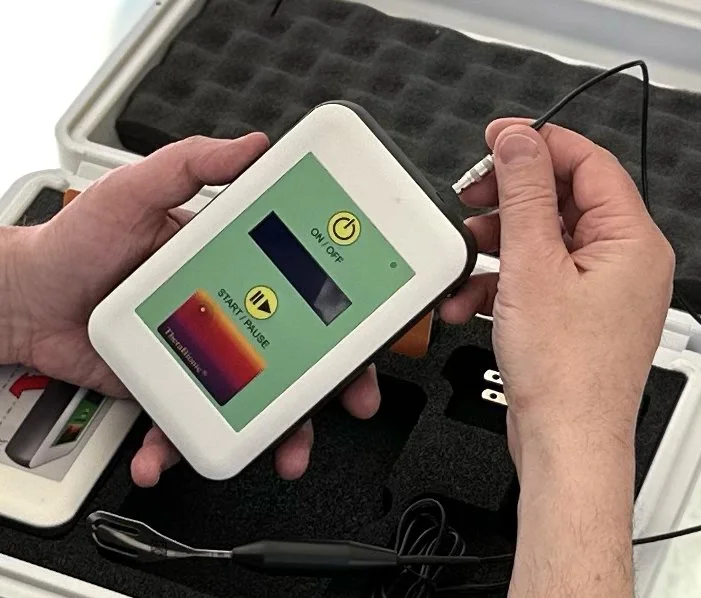News & Research
-

TheraBionic treatment brings hope to liver cancer survivor
A patient story of how TheraBionic treatment keeps him on the go
-

Research update: TheraBionic device effective in suppression of brain cancer growth
A U.S. research team found radiofrequency electromagnetic fields (RF EMF) delivered via Therabionic device effective in treatment of glioblastoma.
-

TheraBionic Inc. announces FDA Approval of new medical device to treat advanced liver cancer
TheraBionic’s P1 device is the First FDA-Approved Therapy Using Radiofrequency Electromagnetic Fields for the Systemic Targeted Treatment of Cancer.
-

Safety and Efficacy of amplitude-modulated radiofrequency electromagnetic fields in advanced hepatocellular carcinoma
Hepatocellular carcinoma (HCC) is the third leading cause of cancer death worldwide.
-

Hepatocellular carcinoma therapy finds a channel on the radio
HCC is the main type of liver cancer which has a very poor prognosis. Finding alternative therapeutic approaches for these patients is imperative.
-

Tumour-specific AM RF EMF induce differentiation of hepatocellular carcinoma via targeting Cav3.2 T-type voltage-gated calcium channels and calcium influx
Administration of amplitude modulated 27·12 MHz radiofrequency electromagnetic fields (AM RF EMF) by means of a spoon-shaped applicator placed on the patient's tongue is a newly approved treatment for advanced hepatocellular carcinoma (HCC).
-

Ca2+ and CACNA1H mediate targeted suppression of breast cancer brain metastasis by AM RF EMF
Study of a novel therapy for brain metastases that delivers athermal radiofrequency electromagnetic fields that are amplitude-modulated at breast cancer specific frequencies (BCF).
-

Targeted treatment of cancer with radiofrequency electromagnetic fields amplitude-modulated at tumor-specific frequencies
We have developed noninvasive biofeedback examination devices and techniques and discovered that patients with the same tumor type exhibit biofeedback responses to the same, precise frequencies.
-

Cancer cell proliferation is inhibited by specific modulation frequencies
These findings uncover a novel mechanism controlling the growth of cancer cells at specific modulation frequencies without affecting normal tissues, which may have broad implications in oncology.
-

Amplitude-modulated electromagnetic fields for treatment of cancer
Because in vitro studies suggest that low levels of electromagnetic fields may modify cancer cell growth, we hypothesized that systemic delivery of a combination of tumor-specific frequencies may have a therapeutic effect.
